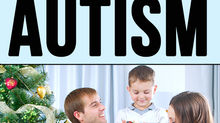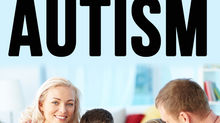How to Help Your Child with Autism Make Friends – and Why it Matters
- Aug 27, 2014
- 2 min read
Most children with autism have difficulties with social interaction and communication. They can include a lack of typical reciprocal conversation, an inability to initiate or respond to social cues, and an overall void of interest in peers. These difficulties can often be exacerbated by their peers, who lack the social grace and experience to react with maturity when it comes to interacting with children with autism. For a child with autism, their unconventional responses to social interactions can lead to conflict, or being disregarded by their peers. Unfortunately, this can lead a child with autism to become withdrawn, which may lead to more troublesome behavior as they grow older.
The truth is, most children showing these deficits have not yet learned or experienced the positive effects of interacting with peers. For these children, learning how to build friendships at an early age can make a world of difference in their lives.
For a child with autism, having a parent who knows how to navigate and encourage social interactions between their child and others is imperative. Inviting friends into your home, including your child in activities that promote social interaction, or helping your child find a peer mentor are effective and significant methods of integrating your child with their peers.
There are also proven techniques for improving your child’s social skills, to better prepare them for social situations – especially ones where you will not be there to oversee them. Our video-based training “Making Friends” provides parents with the steps necessary to create a genuine desire to interact with peers, setting the stage for more meaningful social interaction. Developed in collaboration with Thomas M. Caffrey, M. Ed., BCBA, “Making Friends” provides practical plans for those working directly with children with autism on a daily basis.








































Comments